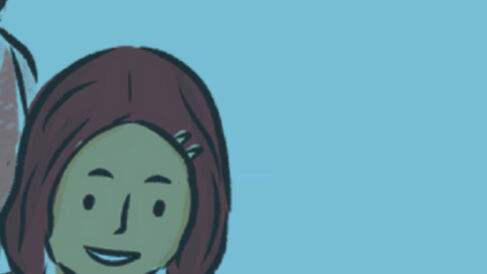Diverse

Diverse Learning
While inclusivity and diversity in education are highly interdependent, in this report ‘diversity’ represents the method of delivery and type of content that is taught, learned and assessed at Cambridge. While relevant to this section, the report will not discuss the matter of decolonialising the curriculum as this was not something that students touched upon during the data gathering stage.
Better Tomorrow: Diverse 1
Students expect to have access to a diverse curriculum, which allows them to explore various subjects before specialising in their chosen field, later in their academic journey.
Barriers: The abundance of choice in undergraduate programmes is highly valued by students, but often reveals disorganised inter-departmental alignments and communication, which impacts students' experience and their ability to navigate multiple disciplines with adequate support.
Opportunities: To ensure continuous improvement, the university could re-evaluate the existing inter-departmental evaluation and feedback mechanisms, as well as the effectiveness of current communication practices.
Better Tomorrow: Diverse 2
Students expect to get more varied, practical and creative skills out of their degree.
Barriers: There is a concern that the university's focus on traditional metrics of success overlooks the importance of other skills and approaches to building one's future.
Opportunities: Encourage and promote creative thinking, and opportunities for experiential learning, which can help students explore and prepare for a wider array of career possibilities.
Better Tomorrow: Diverse 3
Students expect to engage with a broader range of knowledge delivery methods and resources, thus reducing the dependence on lectures and placing more emphasis on interactive sessions.
Barriers: The didactic style of teaching is not seen as the most effective way to acquire knowledge and actively engage with the course material. Students prefer interactive sessions where they can learn from academic staff and other students in more informal and compelling ways (e.g., video materials, discussions, group activities/ problem solving).
Opportunities: The university and departments could embrace alternative teaching approaches that create a more dynamic and interactive learning environment, thus enhancing the students' engagement with the subject matter.
Better Tomorrow: Diverse 4
Students expect study materials that are diverse, supportive, and properly referenced, encompassing various formats such as videos, 3D visualisations, lecture recordings, course handouts, and engaging yet informative PowerPoints.
Barriers: Some students feel that their departments have a shortage of helpful study resources (e.g., course handouts and lecture recordings) along with the issue of inadequately designed PowerPoints.
Opportunities: Departments could enhance the availability and quality of study provisions, creating a more engaging learning environment for students and supporting their academic success.
Better Tomorrow: Diverse 5
Students expect to have alternative types of assessment methods that foster their creativity and communications abilities.
Barriers: Students feel that there is an over-reliance on exams, which do not align with the skills they will need in their future endeavours
Opportunities: Diversify the assessment methods with more project-based assignments, presentations, group work or case studies.
Better Tomorrow: Diverse 6
Students expect to have seamless Moodle user experiences that emphasize an intuitive navigation and a full utilisation of its features.
Barriers: While some students already benefit from a user-friendly Moodle, others tend to avoid it due to disorganised content and inadequate navigation.
Opportunities: Address the disparity of student experiences using the platform and provide support to both staff and students so they can enhance their understanding and utilisation of Moodle's features.
